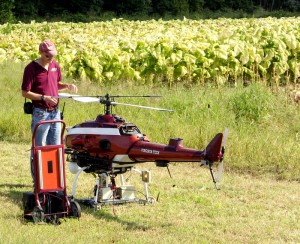
The poverty-stricken area is running out of monetary fuel as the area coal industry dries up, sucking millions of dollars and jobs from the Virginia economy
In the town of Wise, former state legislator Jack Kennedy is leading an effort to replace coal jobs with drone jobs. In a recent interview with richmond.com, Kennedy laid out a plan to attract high-tech UAV firms to the area that would initially see a mass testing program to certify as many FAA-approved, local drone pilots as possible.
“We want to develop [the drone-industry] niche, and do it well,” Kennedy said. “If we develop human capital, they will come. It’s not about building the infrastructure. It’s educating the human.”
Kennedy hopes training a sizable group of local mechanics and pilots will attract drone companies to Wise. He also points out the area’s topography is perfect for drone testing.
“Half of Wise County is national forest, 10 percent is state forest and another 25 percent is mined land,” Kennedy told richmond.com. “As a result, there’s a lot of room for error.”
Wise County has already made its mark in the annals of drone history, hosting the first-ever U.S. drone delivery test in 2015. A quadcopter manufactured by Flirtey delivered a 4 kg package of medical supplies from Lonesome Pine Airport in Virginia to a clinic located at the Wise County Fairgrounds.
Kennedy says the Virginia Coalfield Economic Development Authority has identified the drone industry as a “targeted business sector.” Representatives of the department have already attended several drone-industry conferences and expos to get the lay of the land.
Virginia has led the way in fostering a drone-friendly atmosphere across the state. In 2014, the FAA approved the Mid-Atlantic Aviation Partnership’s Unmanned Aircraft Systems test site program in Blacksburg.
In 2016, the FAA approved a flight corridor for research up to 7,000 feet over an area of 5,000 square miles in Virginia near the Blacksburg test site.
Jason is a longstanding contributor to DroneLife with an avid interest in all things tech. He focuses on anti-drone technologies and the public safety sector; police, fire, and search and rescue.
Beginning his career as a journalist in 1996, Jason has since written and edited thousands of engaging news articles, blog posts, press releases and online content.
Email Jason
TWITTER:@JasonPReagan
Subscribe to DroneLife here.